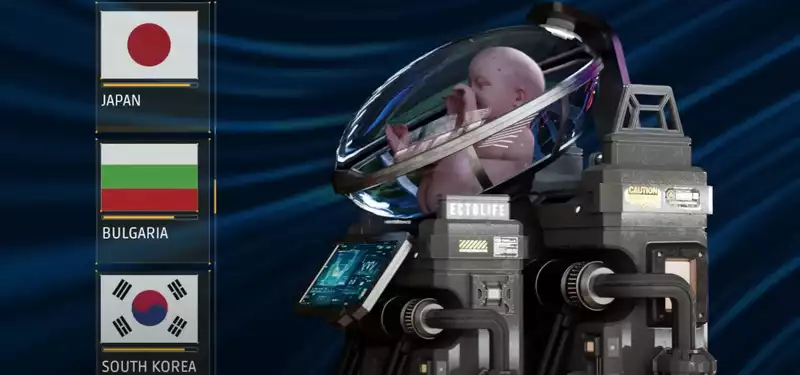Jan 11, 2023
Thousands of people were convinced that genetically modified babies were being produced in factories.
When discussing the merits of a work of art, the question is often asked whether the final work fulfills the artist's intentions.
In the animated short film "Ectolife: The World's First Artificial Womb Facility," the answer seems to be a resounding "yes." Despite the fact that all the images of the "facility" in the video are clearly animated and play more like an episode of "Love, Death and Robots" or "Black Mirror" than a PBS Nova special, thousands who have seen the short film have been convinced of its authenticity.
The viral film has received 1.7 million views in just over a month since its release on Youtube, with over 12,400 comments in dozens of languages varying from incredulous to outraged to disgusted. Many of the comments are from users who are convinced that the technology represented in the video is real, despite the exceptional claims made by a robotic-looking narrator who describes the technology as more science fiction than science fact, using a frighteningly dystopian vocabulary.
EctoLifo was submitted by Hashem Al-Gaili, a Berlin-based producer, filmmaker, and science communicator. According to his website, Al-Gaili is a molecular biologist with a degree from Jacobs University in Bremen who "uses his knowledge and passion for science to educate the public through social media and video content."
After people swiped the film from Youtube and began spreading it on social media platforms like Facebook, reactions to the film became even more polarizing and controversial. Al-Ghairi explained to AFP Fact Check that the video was created by him as a concept, and that users who share it online as if it were real are "ignoring the context." Nevertheless, no such context is provided on either Al-Ghairi's Youtube channel or website, and the video is presented as if it were real.
One could argue that the claims made in the video should be enough to convince viewers that the technology being shown is not authentic. It could also be argued that Al-Ghairi could have avoided confusion if he had included a disclaimer to that effect when he posted the video. In most respects, Al-Ghairi is more of a filmmaker than a self-proclaimed "science communicator," which adds to the confusion surrounding his work.
In any case, Al-Ghairi told AFP, "Ectolife is not a real facility, and so far no work has been done to create a prototype. This video is intended to show how far science and reproductive technology have come and to start a discussion around such technology."
Judging solely on artistic merit, Al-Ghairi's work is impressive. (Disclaimer: We are not scientists and do not endorse the claims made in his video.) This short film also demonstrates that, for better or worse, animation can be a powerful tool for advancing the debate over science and technology. He has garnered millions of views for his videos on biology, addiction, and exploration, including a concept for a nuclear sky hotel and a trailer for a science fiction feature film he is working on, Orbital.




Post your comment